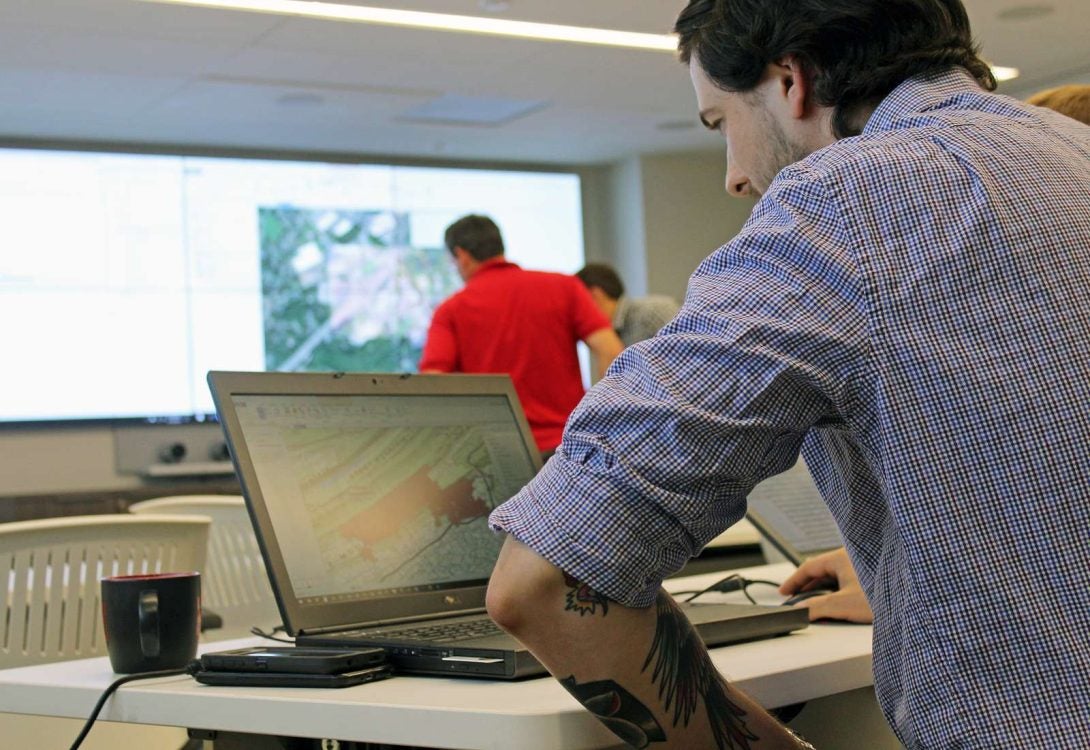Digital Skills in the Green Economy
Introduction
Digitization across all sectors of the economy has been increasing rapidly. In the report, Digitization of the American Workforce conducted by the Brookings Institution, the average digitization score across all occupations rose from a low level of 29 in 2002 to a medium level of 46 in 2016, a 57% increase. As technology continues to advance, so does the need for digital skills. Digital skills include a range of categories from electronic mail software to coding, artificial intelligence, and machine learning. Often, job requirements include some form of digital skills, and this trend is expected to continue.
text 1

The green economy is experiencing rapid growth as digitization of the economy accelerates. The 2021 update of the Nathalie P. Voorhees Center’s 2019 Clean Energy report found that the Chicago MSA region has seen steady job growth from 2011 to 2020. The green economy has grown 11.6%, energy efficiency has grown 14.9%, environmental management has grown 7.7% and clean energy production has grown 3.2%. These are significant growth rates and promising for the future of green jobs and green energy. The green economy is new and on the cutting edge of innovation; advanced technology is an essential part of the industry and digitalization is a critical part of this.
In the 2021 update of the Voorhees Center Clean Energy report from 2019, also found that from 2011 to 2020, the Cook County Green Economy jobs have increased 5.9% and the Chicago MSA Green Economy jobs have risen 11.6%. The Chicago Jobs Council conducted a report in December 2020 that found that of the 39.3% of energy-related employers in Illinois who hired new employees, 61% reported having a “very difficult” time hiring, and 29% reported a “somewhat difficult” time hiring. The reasons were as follows:
TExt 2
- Workers lacked experience, training, or technical skills
- Competition/small applicant pool
- Insufficient nontechnical skills (work ethic, dependability, critical thinking)
The number one reason was that “workers lacked experience, training, or technical skills” (Chicago Jobs Council, 2020). As jobs require new skills, companies tend to look externally. This is very discouraging for existing employees who are not considered for promotions and new roles. A significant number of employees not advancing due to a lack of digital skills are members of minority groups in underserved communities. This exacerbates race and gender disparities in the green economy.
The Brookings Institution report cited above stated that whites are over-represented in high-level and medium-level digital occupational groups. “Additionally, women, who have slightly higher aggregate digital scores, represent about three-quarters of the workforce in many of the largest medium-digital occupations” (Brookings, 2017). Men continue to lead in the highest-level digital occupation jobs. Employees in the green economy are also overwhelmingly white. The Aspen Institute cited a 2017 study that found “white people account for more than 4 of 5 positions in the [green economy] sector.” To address growth in technology and the green economy, the Voorhees Center is working to highlight equity gaps to assist community organizations and governments as they work to promote more equitable and inclusive opportunities.
The gaps are clear: The benefits of a growing green economy and the digitization of the workforce are not being spread evenly along race, gender, and class lines. It is important that companies upskill current employees by offering workforce training to fill skilled positions before looking externally for new employees to fill these roles.
The UIC Voorhees Center team is working on an interactive tool that will provide one-page summaries for all jobs in the green economy throughout the nation; the summaries will include the digital skills needed for each position. Workforce development organizations and local governments can use this tool as they design training programs and educational materials, as well as for job placement purposes.
Our preliminary research is intended to provide context on the skills needed for the green and clean energy economy. We have identified five categories as areas of interest based on the ONet data portal:
- Analytical or Scientific Software
- Computer Aided Design CAD Software
- Database User Interface and Query Software
- Electronic Mail software
- Cloud-Based Data Access and Sharing Software
Creating educational opportunities around these job skills, with a focus on serving people of color and women, will help the overall pool of qualified applicants, as well as diversify the current green economy workforce. The Voorhees Center will be working with partners to develop training programs and offer support for the residents of the Chicago Region. We will work to address the industry gaps through tech talent development, applied research, technical assistance, and business development.